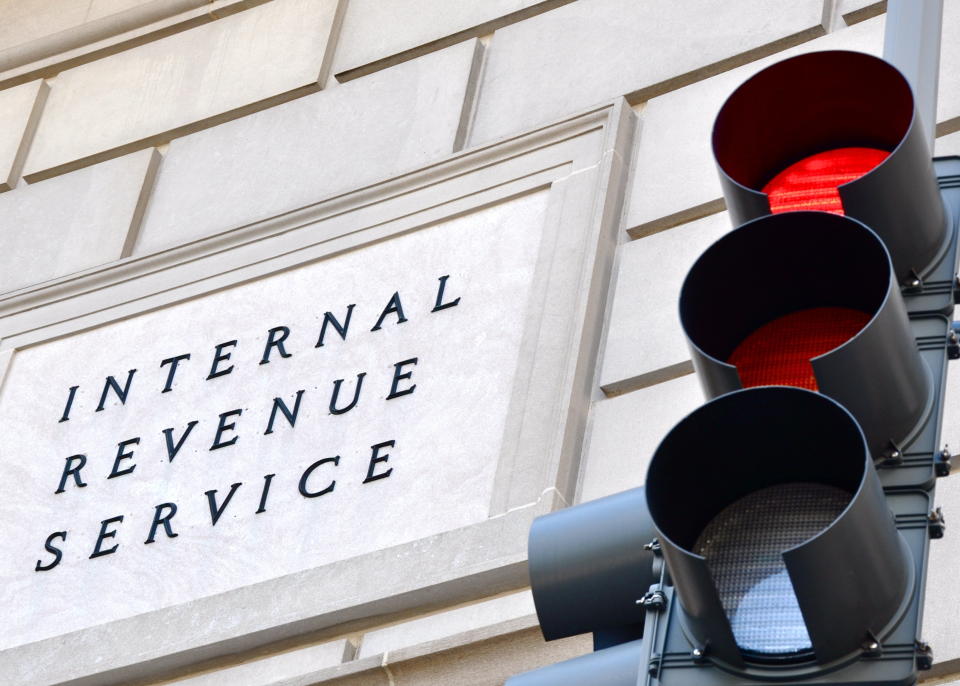Business taxes hit a record low under Trump
The 2017 tax cuts drafted by Congressional Republicans and signed by President Trump cut the corporate tax rate from 35% to 21%. But businesses ended up paying way less than 21% of their income in taxes in 2018, the first year the tax cuts were in effect.
Corporations paid just 7% of their profits as federal taxes in 2018, according to data provided to Yahoo Finance by research firm Oxford Economics. That’s the lowest effective tax rate since at least 1947. In 2017, the effective corporate tax rate was 13.6%, which means the Trump tax cuts nearly halved the portion of profits businesses actually pay in taxes.
Here’s the effective tax rate since 1947:

There’s no set definition for “effective tax rate.” The Oxford Economics figures represent federal income taxes paid by corporations in a calendar year as a percentage of corporate profits in the same year. Since World War II, that number has never fallen below 10% – until last year.
In addition to cutting the corporate rate, the Trump tax cuts also let businesses deduct the full cost of many new investments in the year those investments are made, instead of spreading out those deductions over time. That likely helped push down corporate tax bills in 2018, in addition to lower rates. There are many other tax credits and loopholes allowing businesses to whittle their tax bill far below the statutory tax rate.
On the whole, federal revenue from corporate income taxes fell from $286 billion in 2017, before the tax cuts went into effect, to $194 billion in 2018, with the tax cuts in full force. That’s a 32% decline. Most individual taxpayers also got tax cuts from the 2017 law, yet federal revenue from individual income taxes rose from $1.62 trillion in 2017 to $1.67 trillion last year—a 3% increase. Total individual tax revenue went up due to higher pay and a net increase of 2.7 million jobs in 2018.
Individual income taxes represented 50.1% of all federal revenue in 2018, up from 48.5% the year before. Corporate income taxes accounted for just 5.8% of federal revenue in 2018, down from 8.5% the year before. Other sources of revenue include estate taxes, excise taxes and the payroll taxes that finance Social Security and Medicare. (Yahoo Finance calculated these figures for calendar years, even though the federal fiscal year runs from October through September.)

The Trump tax cuts are unpopular largely because voters think they benefit businesses and the wealthy too much, and middle class workers not enough. A recent Pew survey found that 49% of Americans disapprove of the 2017 tax cuts, while just 36% approve. Eighty-two percent feel corporations don’t pay their fair share of taxes, and 80% felt that way about the wealthy.
There are some misapprehensions about the tax law. A recent Wall Street Journal/NBC News poll found that just 17% of respondents feel their taxes went down on account of the 2017 law, while 28% think their taxes went up. In reality, the tax law cut taxes for about 65% of taxpayers and raised taxes on only 6%, according to the Tax Policy Center.
“A lot of people are probably wrong about whether their taxes went up or down,” says Eric Toder, co-director of the Tax Policy Center. “But according to our numbers, a relatively large portion of the tax cuts went to high-income individuals—the investor class. Even without the corporate tax cuts, that contributes to a disproportionate benefit to high income people.” At the lower end, tax cuts may simply have been too small to notice.
President Trump and many fellow Republicans promised those corporate tax cuts would spur investment and hiring, but the evidence of that happening is modest at best. There was a bump in spending and intellectual property investment in 2018, but Oxford Economics thinks the tax cut only boosted GDP growth by about half a percentage point in 2018. That should fade to around one-tenth of a point this year and be negligible in 2020—when Trump is running for reelection.
Confidential tip line: [email protected]. Encrypted communication available. Click here to get Rick’s stories by email.
Read more:
Why Trump wants to manipulate the Federal Reserve
The Mueller probe was money well spent
College admission scandal reveals the worst parents ever
“Country bumpkins:” 5 business problems with Trump’s Russia deal
Why voters will reject the "Green New Deal"
Voters are souring on “Medicare for all”
3 problems with Elizabeth Warren’s wealth tax
Rick Newman is the author of four books, including “Rebounders: How Winners Pivot from Setback to Success.” Follow him on Twitter: @rickjnewman
